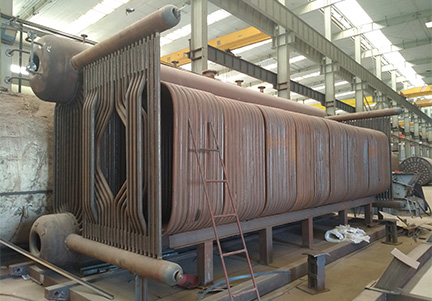wood fired thermal oil boiler service
Wood Fired Thermal Oil Boiler Service Ensuring Efficiency and Reliability
In the landscape of industrial heating solutions, wood-fired thermal oil boilers stand out as a sustainable and efficient option for many applications. These systems utilize biomass as a fuel source, leading to reduced carbon emissions and lower operational costs compared to traditional fossil fuels. However, like any other heating equipment, maintaining optimal performance through regular service is essential for maximizing efficiency and ensuring safety. This article delves into the importance of servicing wood-fired thermal oil boilers and outlines best practices for upkeep.
Understanding Wood Fired Thermal Oil Boilers
Wood-fired thermal oil boilers are designed to transfer heat via thermal oil, used in processes such as food processing, chemical production, and various manufacturing applications. The main components include a combustion chamber, a heat exchanger, and a system for circulating the thermal oil. When wood is burned in the combustion chamber, the generated heat warms the thermal oil, which is then circulated to transfer heat to the desired process or equipment.
The use of wood as a fuel source brings several advantages, such as sustainability and availability. However, efficient operation requires a boiler that is well-maintained and regularly serviced.
Importance of Regular Service
Regular servicing of wood-fired thermal oil boilers is crucial for several reasons
1. Efficiency Maintenance A well-maintained boiler operates more efficiently, translating to reduced fuel consumption and cost savings. Over time, soot and other byproducts can accumulate in the boiler, leading to decreased efficiency. Regular cleaning and inspections can prevent this buildup.
2. Safety Assurance Boilers operate under high pressure and temperature conditions. Any malfunction could pose significant safety risks, including leaks or explosions. Regular servicing ensures that safety devices are operational and that the system is functioning correctly to prevent hazardous situations.
3. Extended Equipment Life Just like any machinery, the lifespan of a wood-fired thermal oil boiler can be extended with routine maintenance. Timely checks and repairs can prevent major breakdowns, thereby saving costs associated with complete replacements or extensive repairs.
4. Compliance with Regulations Many industries are subject to strict environmental regulations, particularly concerning emissions. Regular servicing can ensure that the boiler meets local laws and standards, preventing fines and ensuring a commitment to environmental sustainability.
wood fired thermal oil boiler service

Best Practices for Service
To ensure the effective operation of wood-fired thermal oil boilers, a detailed service schedule should be established. Here are some best practices
1. Routine Inspections Conduct regular visual inspections of the boiler system to check for leaks, corrosion, and wear. These inspections should include the combustion chamber, heat exchanger, circulation pumps, and any visible piping.
2. Cleaning Regularly clean the combustion chamber and heat exchanger to remove soot, ash, and other residues. Using the appropriate cleaning techniques and tools is important to avoid damaging the components.
3. Check and Replace Gaskets Over time, gaskets can wear out, leading to leaks and inefficiencies. Regularly check these components and replace them whenever necessary to maintain a tight seal.
4. Monitor Oil Quality The thermal oil should be tested periodically for its properties, including flash point, viscosity, and acidity. Poor oil quality can lead to degradation of the system and inefficiencies in heat transfer.
5. Calibrate Safety Devices Safety valves, pressure sensors, and alarms should be regularly tested and calibrated to ensure they function correctly. This step is vital for the safe operation of the boiler.
6. Engage Qualified Professionals While some maintenance tasks can be performed in-house, it’s prudent to engage qualified technicians for comprehensive servicing. They can provide a deeper insight into potential issues and ensure that all aspects of the boiler are operating optimally.
Conclusion
Wood-fired thermal oil boilers represent a promising alternative to traditional heating systems, tapping into renewable energy sources and promoting environmental sustainability. However, the continued efficiency and safety of these systems depend on regular service and maintenance. By adhering to best practices and ensuring that qualified professionals are involved in the servicing process, businesses can not only prolong the lifespan of their boilers but also enhance operational efficiency, mitigate safety risks, and comply with environmental regulations. Investing in the proper care of wood-fired thermal oil boilers is, therefore, a critical component of successful industrial operations.
-
Top Electric Steam Boiler Manufacturers – Reliable Industrial SolutionsNewsJul.24,2025
-
Top Electric Steam Boiler Manufacturers – High Efficiency & ReliabilityNewsJul.23,2025
-
Best China Steam Boiler Price for Efficient Industrial HeatingNewsJul.22,2025
-
Top Electric Steam Boiler Manufacturers - High-EfficiencyNewsJul.21,2025
-
High-Efficiency OEM Steam Boilers: Durable & Cost-Saving SolutionsNewsJul.21,2025
-
Skid Mounted Thermal Oil Boiler | Compact & Energy-Efficient HeatingNewsJul.20,2025

